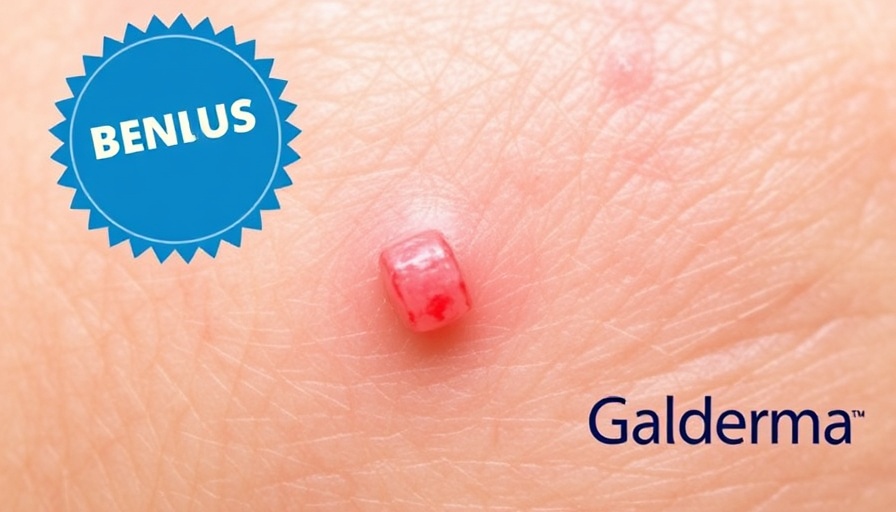
Understanding Mycosis Fungoides: The Skin Cancer You Might Not Know
When we think about skin cancer, the most common forms come to mind: melanoma, basal cell carcinoma, and squamous cell carcinoma. Yet, there’s a lesser-known but equally important type called mycosis fungoides, a kind of lymphoma that can be mistaken for other skin issues. This form of skin cancer emerges as patches that can cause confusion among both the public and healthcare providers. In a world where knowledge is power, understanding mycosis fungoides can better equip us to recognize it early.
The Awkward Stage of Diagnosis
Imagine dealing with unusual skin rashes or changes and being met with uncertainty each time you visit a doctor. For women aged 25-45, this experience can feel particularly daunting; the pressure to maintain flawless skin can complicate a already stressful situation. Unfortunately, many patients with mycosis fungoides report a frustrating journey through misdiagnoses, resulting in delayed treatments. Early signs can appear as simple eczema or psoriasis, which many practitioners might misinterpret, leading to unnecessary anxiety or unjustified skincare regimens.
Why Early Diagnosis Matters
Early diagnosis of mycosis fungoides can play a crucial role in effective treatment. Research shows that when detected in its initial stages, patients have much better outcomes. It is essential for individuals, especially those in the soft healthcare industries, to advocate for accurate diagnoses. Understanding the symptoms and seeking second opinions when needed can pave the way for more effective treatment options.
Expert Insights: A New Approach to Diagnosis
Experts have recently begun exploring advanced diagnostic techniques that might revolutionize the early detection of mycosis fungoides. Techniques such as skin biopsies followed by genomic analysis are gaining traction. These methods identify genetic markers indicative of mycosis fungoides. Moreover, innovative non-invasive imaging tools are being considered, helping speed up diagnosis and giving patients peace of mind.
Counterarguments and Perspectives
While some healthcare providers may resist adopting these new diagnostic strategies due to cost concerns or lack of training, the potential benefits to patient health are significant. Many individuals also worry about introducing unnecessary procedures. Effective communication between patients and providers can mitigate these fears and assist in rallying support for modern diagnostic practices.
Why You Should Care: The Personal Connection
As women navigate the challenges of skincare and self-care, it’s essential to empower ourselves with knowledge. The connection between mycosis fungoides and skin seems abstract until it becomes personal. Understanding this condition can help spread awareness and ensure that you and your loved ones remain vigilant about changes in skin health.
The Future of Skin Health: What’s Next?
Looking ahead, we must remain optimistic. Advancements in diagnostics could lead to more effective treatments tailored specifically to the needs of women and young adults. Spreading awareness around mycosis fungoides can initiate essential conversations in healthcare settings and social circles, ensuring we’re all equipped with the latest knowledge to advocate for our health.
Taking Action: A Call to Advocacy
As a reader and someone looking to understand your skin health better, you have a voice. Engage with discussions around skincare and diseases like mycosis fungoides. Consider educating others in your network and advocating for awareness just by sharing information you learn. The quest for diagnosis may start with sharing and conversations — and together, we can help make a difference.
 Add Row
Add Row  Add
Add 






Write A Comment